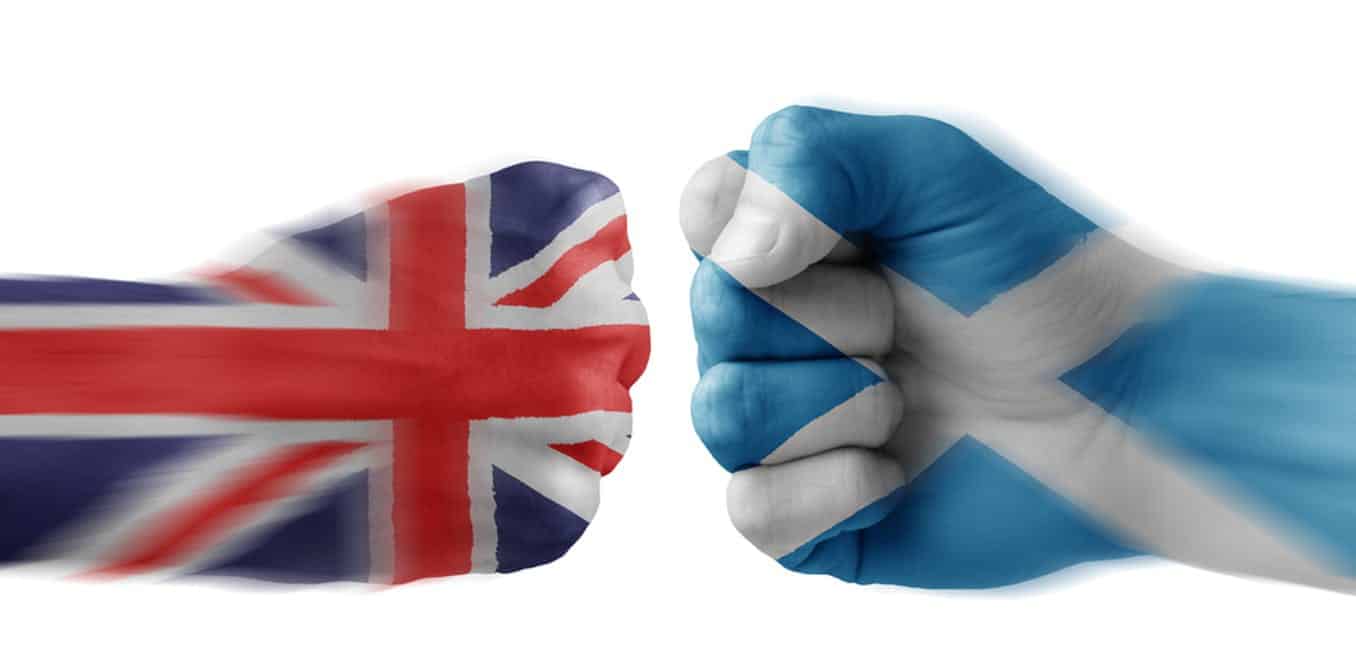
Scotland statistics from September show that the percentage unemployment rate fell by 0.3% in comparison to the previous report and the number of unemployed increased to 2 587 000 according to the national statistics‘ data. There can also be seen the increase in wages, but due to inflation in August, the wages decreased by 0.4%. All in all, the forecast unemployment rate for Scotland in 2018. seems encouraging and the labor market remains tough. Last year‘s Scotland GDP figures show that the Scotland economic growth increased 4 times in the first quarter of 2017. despite the Brexit challenges. Reaching a record high in employment is not enough for the bright forecast of Scotland’s economy in 2018. cause it needs to keep up with the economic performance of the UK, and this will happen only if these two governments find a mutual solution and enable a sensible dialogue. On the other hand, Scotland must do what it can to increase its prosperity and success with a help of other partner countries.
Will Edinburgh remain in the EU single market?
The latest negotiations between Scotland and the UK show that there has been a progress in their talks, but Sturgeon insists that Scotland remains in the EU common market and claims that there are no evident reasons why it wouldn’t remain there. Also, most of the Scottish voters expressed their opinions of favoring that Scotland remains where it has been, and she thinks that their wish should be respected and their position protected. She also thinks that if Ireland gets a special deal to stay within a market, why can’t Scotland or Wales? But some British experts don’t agree with her, saying that this kind of the unchanged status on the EU single market will only bring problems to Scotland and that it will also negatively affect the UN integrity.

How will Brexit affect Scotland?
It seems that Nicola Sturgeon knows how to play the game. As a deputy of Alex Salmond, she succeeded to the top as Scotland’s First Minister and the leader of Scottish National Party (SNP). After Britain voted to exit from the EU and Scotland voted to remain as its part, she’s getting ready for another independence referendum. She doesn’t want to allow the UK government to remove them from the EU and the single market despite the will of their citizens. In April 2017, she planned to issue an act that she called ‘an act of democratic self-determination’ based on the same grounds that British Prime minister had used to explain Britain’s decision to leave the Union. This actually meant that Scotland would buy time to see how the negotiations with Britain would turn out, to see the clear prospects for Scotland, and then the citizens would decide whether they choose the independence or not. She underlined the importance that the citizens of Scotland decide their future and not the British parliament. She believes that a second referendum will position their voters differently than 3 years ago because the certainty about Brexit is shaken.
However, Scotland after Brexit wants to keep the free trade with the EU, but also with Britain cause it makes more than 40% of Scotland’s total trade. Since 2014, the prices of oil and gas have increased dramatically and their budget deficit has doubled ever since. Scotland’s First Minister is aware of that problem and she thinks that they should find a way to resolve it regardless of their (in)dependence. When talking about the currency Sturgeon said that if they joined the EU that they would not use the pound, (following the Swedish example), but it’s still not clear which currency they would accept as theirs.
Scotland unattractive for immigrants
As the highest taxed part of the UK, Scotland seems to be not very attractive for the immigrants. An unfavorable immigration system could drastically cut net migration, and by 2040. the decline of immigrants could reduce BDP by 4.5% i.e. £ 10 billion per year. Scottish specific visa requirement may leave catastrophic consequences on Brexit immigration, especially in the rural parts. There is a noticeable decline in the Highlands and Islands where just a decade ago immigrants helped this region grow. The forecast shows that the thing may get even worse with more deaths than births up to the year 2041. The government of Scotland must seriously pay attention to creating a functional migration policy to improve the population picture. International immigrants make 7% of the entire Scottish population and they are very important in tourism, healthcare, and agriculture. The withdrawal from the EU will make things worse, say the experts.

Economic impact predictions by the Scottish government
The Scottish government says that they should make the most of the first months of 2018. to protect their position on the map of Europe, and that continuation of the EU membership will be the best option for their further development. In case that the UK further insists on Brexit, Scotland must think of the future of their integrity, remaining, as we already said, in the single market since it is the richest marketplace including about 5000 million people working together. The government is about to issue a list of possibilities in case of Brexit – whether they’ll change to World Trade Organization rules, remain in the single market, or turn to a basic free trade deal. The First Minister believes that the negotiations of the UK with the EU will continue soon, but they will state Scotland’s opportunities regardless of the single market outcome. She believes that despite this important relationship, their country has enough power to attract new workers to Scotland, and she also thinks that the decisions taken in the following months will be crucial in relation to wages, jobs, but also the opportunities that will be available to future generations.
